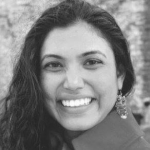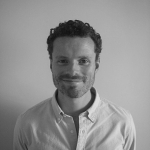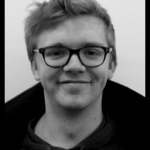Details of forthcoming workshops and links to LTI workshop resources and presentations.
Introducing our student entrepreneur panel
LTI NetworkED Seminar: Student entrepreneurs and innovators: the role of education
Wednesday 4th March 5pm in R01
Learning Technology and Innovation run an annual seminar series called NetworkED: technology in education that invites speakers from the field of education, computing and related disciplines to discuss how technology is shaping the world of education.
Next week’s seminar will be a lively debate bringing together LSE students and alumni to discuss the role of education in developing entrepreneurs and innovators of the future on Wednesday 4th March at 5pm. There are a limited number of tickets available and interested students should book a place via the training booking system: https://apps.lse.ac.uk/training-system/userBooking/course/7447291
In addition to the audience at LSE, the seminars are open to participants around the world, who can watch the live event online on our youtube channel and participate using a range of technologies. The seminars are also recorded so you can watch at your convenience.
Student panel members
Whilst undertaking her PhD in green innovation at the LSE, Maria realised that technologies could play a very useful role in transforming the learning experience – as long as both students and teachers actually integrated using these technologies into their working lives. As a Research Student Officer for the LSE Student Union, Maria has worked with the LTI in launching a PhD student networking tool called Piirus, organised the first “Re-imaging Our Education” event which discussed how learning technologies could be used in education. She also co-founded Black Cili, an animation business that makes academic research more engaging.
Arseni Gladkov
Arseni’s background is in software development and management. Having just completed his Master’s degree at the LSE, he is now working on making the university learning experience more seamless, by means of a new kind of e-learning platform that integrates personal notes with online content and services.
Tom Merriman is a graduate student at LSE studying information systems and digital innovation. He has a background in financial services having worked with Bloomberg LP as a business manager in both London and New York. During his 8 years with Bloomberg Tom was responsible for a number of existing financial software businesses as well as launching several new ones. In 2013, Tom left Bloomberg, cycled 5,000 miles from his apartment in Brooklyn to his new home in San Francisco where he set up a craft beer export business. He has a MSc in Finance from Cranfield and his current research interests include how cloud computing and big data capabilities are disrupting the financial data industry.
Edvard Nore started Europe’s first student-led venture investment fund while an undergrad at UCL, then started a company that went well and subsequently failed spectacularly. He has written about tech for The Nordic Web and Arctic Startup and currently working for the City of Oslo (his hometown) as a community manager at their Oslo Innovation Embassy. He is studying a MSc in Organisational Behaviour at LSE.
Originally from Windsor, Roman Thompson is a second year undergraduate studying BSc Geography with Economics. As the son of a technology consultant, this innovative industry is part of his background. However, upon arrival at LSE, it became apparent to him that that LSE could do more to support careers alternative to the ‘traditional’ LSE routes of finance and consultancy. To this end, he is a cofounder and the current Vice President of Marketing and Public Relations for the LSESU Technology Society. He regards the encouragement of innovation and entrepreneurship as a vital part of this process and the global economy as a whole.
Chair of the panel
Farid Ul Haque
Farid is Founder and CEO of ERLY STAGE STUDIOS an Education Venture Studio focused delivering next generation learning solutions and ‘making learning fun’ for the consumer and corporate markets alike (www.erlystagestudios.com).Farid is also a partner at Connected Labs a content company working across media to deliver brand stories through craft storytelling. Connected Labs is backed by award winning Connected Pictures (www.connectedpictures.com).
You can read more about Farid here: https://strategyanddelivery.wordpress.com/about/
Watch the recording of NetworkEDGE Professor Sonia Livingstone 25/02/15
Powerpoint slides from the presentation: Sonia Livingston @ NetworkEDGE – Slides
Tweet your questions and join the debate #lsenetEDGE
Next Generation Learning Commons Competition
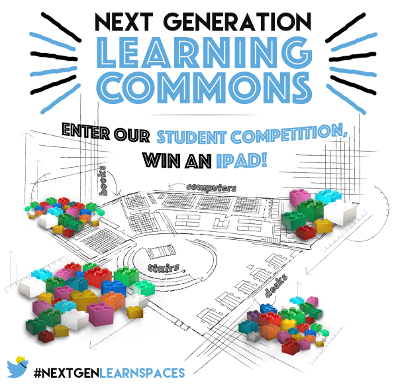 Do you have ideas and suggestions on improving the students’ experience at the library?
Do you have ideas and suggestions on improving the students’ experience at the library?
Would you like to have your say in the changes happening there?
Would you like to feed your ideas into a project to redesign the lower ground floor space?
Do you want to win an iPad or Amazon vouchers?
If you answered “yes” to any of the above, then this competition is for you !
LSE Library and IMT are holding a student competition from Thursday, February 26th to Friday, March 20th. The objective of the competition is to propose ideas to create a modern and engaging environment for the Library lower ground floor that meets students’ contemporary and future needs.
The winning design will receive an iPad Air 2 worth £479 and you will also get the opportunity to boost your CV and to feed your ideas into the design phase.
Interested?
-> Have a look at the full competition details to find out how to enter.
-> No time? Just send us your ideas!
If you have ideas but no time to enter the design competition then you can also send us your ideas about how you would reorganise the space. The best suggestions will receive Amazon vouchers. Submit here !
GOOD LUCK!
NetworkEDGE 25 February 2015 – Sonia Livingstone on developing social media literacy
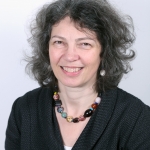
Professor Sonia Livingstone OBE is the LTI NetworkEDGE speaker on Wednesday 25 February at 5pm in Ro1.
She will presenting on ‘Developing social media literacy: How children learn to interpret risky opportunities on social network sites’.
Powerpoint slides from the presentation: SocialMediaLiteracySoniaLivingstone
Watch the live stream below
Tweet your questions and join the debate #lsenetedge
Professor Livingstone’s discussion follows on from our NetworkED seminar with Dr Leslie Haddon on children’s use of phones, and is timely considering the announcement from the BBC today that that ‘more than half of children in the UK have done something “risky” or anti social online’ based on results from the BBC Learning Poll of 2,000 11-16 year olds.
As professor Livingstone outlines below:
“The widespread use of social networking sites (SNSs) by children and young people has significantly reconfigured how they communicate, with whom and with what consequences. Drawing on cross-national interviews and informed by the tradition of research on media literacy, I will discuss the idea of social media literacy. The empirical material reveals a social developmental pathway by which children learn to interpret and engage with the technological and textual affordances and social dimensions of SNSs in determining what is risky and why. Their changing orientation to social networking online (and offline) appears to be shaped by their changing peer and parental relations, and has implications for their perceptions of risk of harm.”
Reserve your place on the staff training and development system or by emailing imt.admin@lse.ac.uk. All our talks are live streamed for those who can’t attend and a link to the live stream will be available on this blog.
Professor Livingstone discussed her work on children’s rights in the digital age with the department of Media and Communications you can view the Q&A on the Media Policy Project blog.
Watch a video interview with Professor Sonia Livingstone below.
LTI NetworkED seminar series – Leslie Haddon 28/01/2015
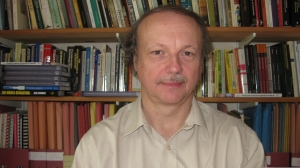 The LTI (learning technology and Innovation) NetworkED seminar next Wednesday 28 January at 3pm in R01 will be from Dr Leslie Haddon on Children’s experience of phones: for better or for worse.
The LTI (learning technology and Innovation) NetworkED seminar next Wednesday 28 January at 3pm in R01 will be from Dr Leslie Haddon on Children’s experience of phones: for better or for worse.
Dr Haddon from the Media and Communications department will be sharing the findings from the Net Children Go Mobile project on children’s use of smartphones and tablets. The two year project carried out quantitative and qualitative research in 7 countries to investigate access and use, risk and opportunities of mobile internet for children in the European context.
The event is free to attend and places can be reserved by staff via the staff training and development system or by emailing: imt.admin@lse.ac.uk.
Meet Matthew Connelly, our upcoming NetworkEDGE speaker
Philippe Roman Chair in History an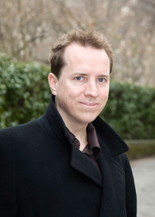 d International Affairs 2014/15, Professor Matthew Connelly, is teaching ‘Hacking the Archive – HY447’ this academic year. He is currently a professor in the Department of History at Columbia University. In our first 2015 NetworkEDGE seminar on 14th January, Professor Connelly be talking about his course, which uses big data from various International History databases and teaches students new tools and techniques to explore various the vast array of material available online. Students are encouraged to rethink historical research in the digital age as older primary sources are increasingly becoming available online alongside newly declassified information and ‘born digital’ electronic records. The seminar is free to attend but places are limited so will need to be reserved via the staff training and development system or by emailing imt.admin@lse.ac.uk. All our talks are live streamed and recorded for those who can’t make it.
d International Affairs 2014/15, Professor Matthew Connelly, is teaching ‘Hacking the Archive – HY447’ this academic year. He is currently a professor in the Department of History at Columbia University. In our first 2015 NetworkEDGE seminar on 14th January, Professor Connelly be talking about his course, which uses big data from various International History databases and teaches students new tools and techniques to explore various the vast array of material available online. Students are encouraged to rethink historical research in the digital age as older primary sources are increasingly becoming available online alongside newly declassified information and ‘born digital’ electronic records. The seminar is free to attend but places are limited so will need to be reserved via the staff training and development system or by emailing imt.admin@lse.ac.uk. All our talks are live streamed and recorded for those who can’t make it.
I caught up with Matt to find out more about his innovative course and his fascinating historical research and asked him a few questions.
Jane: I’ve heard a lot about digital humanities – can you tell us what this is and why it might be a useful way of approaching the study of a subject like history?
MC: “Digital Humanities” is an umbrella term that can be summed up as the use of computational tools and visualisations to assist in humanities research and presentation. Though there are common practices, tools, and methodologies for doing this across disciplines, history as a subject is particularly suited to these approaches. In fact, I believe it will become increasingly important in years to come.
Q&A with Marieke Guy
You can watch the video recording of the Marieke Guy NetworkED seminar on our LTI Youtube channel and a Q&A with Marieke can be found below

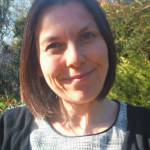
- Marieke Guy from Open Knowledge
Ahead of her NetwokED seminar talk on Wednesday 26 November Marieke Guy answered some questions for LTI on open data in education.
Q1. How would you define ‘open data’? How does this relate to ‘open access’ and ‘open education’ ?
We’re very lucky to have an excellent definition of open data from Open Definition, which specifically sets out principles that define “openness” in relation to data and content:
“Open means anyone can freely access, use, modify, and share for any purpose (subject, at most, to requirements that preserve provenance and openness.”
So we are talking about data that is available for people to access and can be reused and redistributed by everyone. One of the important points to make is that openness does not discriminate against commercizal use. Open data is definitely a friend of open access and open education! Publicly funded research publications should not only be open access but the data behind them should also be shared and openly available. At the Open Education Working Group we see open education as a collective term that is used to refer to many practices and activities that have both openness and education at their core. Open data is an important area, along with open content, open licensing, open tools, open policy and open learning and teaching practices. This is becoming even more the case with the rise in online learning, MOOCs and the use of learning analytics.
Q2. Who typically uses open data and what does it get used for?
Anyone can consume open data as an end-user benefitting from openness, but there are two main groups who have a specific interest in dealing with open data. Data providers (such as the government or your institution) may be interested in releasing and sharing data openly. Data handlers are interested in using the data available, maybe by developing an app or service around the data, or by visualising the data, or by asking questions of the data and mining it in some way. A nice easy example here is the Great British Toilet map,
where government data was combined with ordnance survey and open street map data to provide a public service app that helps us find the nearest public convenience. You can also add toilets you find to the map, allowing the data that is available to be improved on.
Obviously people who want to get their hands messy with data will need to be data literate. One of our core projects at Open Knowledge is School of Data. School of Data works to empower civil society organisations, journalists and citizens with the skills they need to use data effectively in their efforts to create more equitable and effective societies.
Q3. What are the pros and cons of open data?
The main benefits for using open data are around transparency (knowing what your government and other public bodies are doing), releasing social and commercial value, and participation and engagement. By opening up data, citizens are enabled to be much more directly informed and involved in decision-making. This is about making a full “read/write” society, not just about knowing what is happening in the process of governance but being able to contribute to it.
Opening anything up makes organisations more vulnerable, especially if they have something to hide, or if their data is inaccurate or incomplete. There is also a cost to releasing and building on data. Often this cost is outweighed by the social or economic benefit generated, but this benefit can develop over time so can be hard to demonstrate. Other challenges include the possible misinterpretion or misrepresention of data, and of course issues around privacy.
I personally see open data as being in the same space as freedom of speech with regard to these challenges. We know that open data is the right way to go but there are still some subtleties that we need to work out. The answer to a ‘bad’ use of open data is not to close the data, just as the answer to a racist rant is not to remove our right to freedom of speech.
Q4. Do you have any examples of projects that have involved using ‘open data’ and if so what advantage did ‘open data’ bring?
Earlier this year Otavio Ritter (Open education data researcher, Getulio Vargas Foundation, Brazil) gave a talk to our Open Education Working Group. He mentioned a case in Brazil where the school census collects data about violence in school area (like drug traffic or other risks to pupils). Based on an open data platform developed to navigate through the census it was possible to see that in a specific Brazilian state 35% of public schools had drug traffic near the schools. This fact put pressure on the local government to create a public policy and a campaign to prevent drug use among students. Since then a collection of initiatives run by the United Nations Office on Drugs and Crime (UNODC) have made a huge impact on the drug traffic levels near schools.
Q5. What does Open Knowledge do?
Open Knowledge is a worldwide non-profit network of people who believe in openness. We use advocacy, technology and training to unlock information and enable people to work with it to create and share knowledge. We work on projects, create tools and support an amazing international network of individuals passionate about openness and active in making, training and promoting open knowledge. Our network is global (we have groups in more than 40 countries and 9 local chapters) and cross-domain (we currently have 19 working groups that focus on discussion and activity around a given area of open knowledge).
Marieke Guy will be talking at LSE on Wednesday 26 November at 5pm in NAB2.06. To book your place go to the staff training and development system or (for those without access to the system) email imt.admin@lse.ac.uk
Have a look at previous talks on our Youtube channel.
LTI Show and tell on assessment with Technology, 11 November 2014
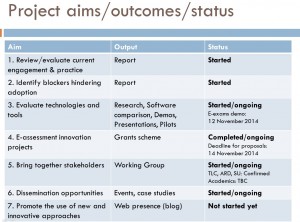 LTI recently held a show and tell on assessment with technology with colleagues from LSE, UCL and Westminster. The event was well attended and provided an opportunity to find out the varying ways that technology is being used in to innovate assessment.
LTI recently held a show and tell on assessment with technology with colleagues from LSE, UCL and Westminster. The event was well attended and provided an opportunity to find out the varying ways that technology is being used in to innovate assessment.
The show and tell event is part of the work that is being done by LTI to promote assessment with technology at LSE. The project aims and outcomes outlined by LTI learning technologists Athina Chatzigavriil and Kris Roger can be seen here. If you are interested in being involved in the working group on e-assessment or have examples of e-submission, e-marking or e-feedback and e-return then please get in touch by emailing lti.support@lse.ac.uk
A lecture capture recording of the event (slides and audio) is now available here (LSE login required) or you can read a brief summary of the presentations below.
Alternatives to examinations
 Professor George Gaskell started off the event with a brief outline of the changes that are taking place in LSE100, the compulsory course for Undergraduates at LSE. The LSE100 Director explained that the course team are currently investigating alternatives to exams. Using the learning outcomes of the course as the basis for assessment they have been developing a portfolio of activities that will allow students to demonstrate their appreciation of apply social scientific methods, concepts and theories to real world problems. Assessments will have to allow for ‘exit velocity’ and let students to take risks in their first year and allow for the progress of learners over their two years at LSE, while also preventing strategic planning by requiring all components to be completed. The process is still in the developing stages so watch this space for updates.
Professor George Gaskell started off the event with a brief outline of the changes that are taking place in LSE100, the compulsory course for Undergraduates at LSE. The LSE100 Director explained that the course team are currently investigating alternatives to exams. Using the learning outcomes of the course as the basis for assessment they have been developing a portfolio of activities that will allow students to demonstrate their appreciation of apply social scientific methods, concepts and theories to real world problems. Assessments will have to allow for ‘exit velocity’ and let students to take risks in their first year and allow for the progress of learners over their two years at LSE, while also preventing strategic planning by requiring all components to be completed. The process is still in the developing stages so watch this space for updates.
Peer assessment
 Dr Irini Papanicolas, from Social Policy gave the second presentation on her work with Steve Bond in LTI on peer assessment. Dr Papanicolas discussed how she changed assessment on the course SA4D4 from 100% exam, to 50% exam and 50% presentation. She used ‘WebPA’ to enable students to rate their peers’ presentations using the course mark frame. Although peer assessment was an optional part of the assessment all the groups volunteered feedback and there was a positive response to the process with it creating discussion within the groups on the assessment criteria.
Dr Irini Papanicolas, from Social Policy gave the second presentation on her work with Steve Bond in LTI on peer assessment. Dr Papanicolas discussed how she changed assessment on the course SA4D4 from 100% exam, to 50% exam and 50% presentation. She used ‘WebPA’ to enable students to rate their peers’ presentations using the course mark frame. Although peer assessment was an optional part of the assessment all the groups volunteered feedback and there was a positive response to the process with it creating discussion within the groups on the assessment criteria.
Dr Papanicolas will be using ‘TeamMates’ for this year as it will allow students to not only rate their own groups’ presentation but the individuals contributions within the group.
From peer assessment to peer teaching and learning….
Kevin Tang then reported how ‘Peerwise’ has been used at UCL. Kevin has been working with Sam Green & Stefanie Anyadi in the department of Linguistics to use the platform with 50 undergraduate and 50 postgraduate students. PeerWise allows students to create, answer and discuss questions. Students can rate feedback and are scored on their own contributions, at UCL these contributions are then worth a small percentage of their summative mark for the course.
Research into using the interface indicated that it was important to provide support for students to ‘think like an examiner’ with example questions and training on giving constructive feedback. Academic staff attitudes also played a crucial role in student engagement along with setting regular activities and deadlines.
As most examiners will know it is quite hard to create good questions so UCL asked students to devise questions in groups and found that the questions improved over time with the students in mixed ability groups appearing to benefit the most. The platform provided a space for interaction as students provided detailed feedback for each other which was then used to work on future questions and students were still using the system leading up to the exam for revision purposes.
Games and assessment in Law
Dr Vassiliki Bouki, Principal Lecturer, University of Westminster talked about the use of games in assessment. Dr Bouki demonstrated the ‘law of murder game’ which was developed in ‘Articulate storyline’ and was used as an alternative to coursework for a second year criminal law module. The game was used to demonstrate a real life scenario and assess critical thinking and allowed students to experience role playing to think like a lawyer. Students are given two hours to complete several small tasks in an open book environment. The game is currently in use so data and feedback from students will be available later in the year.
Word processed timed assessments and online feedback
 Dr Sunil Kumar, Lecturer in Social Policy & Dean of Graduate Studies, talked about his experiences over three years on the course ‘urbanisation and social policy’. Concerned about how much students were actually learning with the traditional model of examinations, Dr Kumar introduced a 2 hour online formative assessment into his course. Students typed up their answers to short answer and long answer questions in examination style conditions. Dr Kumar was then able to read and mark submissions on his iPad and then upload the anonymised assessments with annotated feedback for all students to see on Moodle. The formative assessments have had 100% attendance with students being able to then learn from other students submissions, encouraging them to review topics they have not yet covered in preparation for the summative examination.
Dr Sunil Kumar, Lecturer in Social Policy & Dean of Graduate Studies, talked about his experiences over three years on the course ‘urbanisation and social policy’. Concerned about how much students were actually learning with the traditional model of examinations, Dr Kumar introduced a 2 hour online formative assessment into his course. Students typed up their answers to short answer and long answer questions in examination style conditions. Dr Kumar was then able to read and mark submissions on his iPad and then upload the anonymised assessments with annotated feedback for all students to see on Moodle. The formative assessments have had 100% attendance with students being able to then learn from other students submissions, encouraging them to review topics they have not yet covered in preparation for the summative examination.
More information about the project can be found on our blog post.
LTI NetworkED Seminar series – Marieke Guy 26/11/14
Thank you to all of those who attended last night’s event, whether in person or online. A video recording will be available shortly.
LTI NetworkED Seminar series Marieke Guy ‘Open data in education’ Wednesday 26 November 5:00pm – 7pm, NAB2.06.
 Marieke Guy (@mariekeguy on Twitter) is a project co-ordinator at Open Knowledge (https://okfn.org), a global not-for-profit organisation that wants to open up knowledge around the world and see it used and useful. She has been working with online information for over 16 years and was previously employed by UKOLN, a centre of expertise in digital information management at the University of Bath.
Marieke Guy (@mariekeguy on Twitter) is a project co-ordinator at Open Knowledge (https://okfn.org), a global not-for-profit organisation that wants to open up knowledge around the world and see it used and useful. She has been working with online information for over 16 years and was previously employed by UKOLN, a centre of expertise in digital information management at the University of Bath.
Her areas of interest include research data management, digital preservation, digital cultural heritage, open technologies and open education – she currently co-ordinates the Open Education Working Group (http://education.okfn.org).
Marieke Guy will be our third speaker for the NetworkED series this academic year, see below for more information on her talk which will take place on Wednesday 26 November at 5pm.
Data is very much the flavour of the month, from discussions around data mining and monetisation of data, to privacy issues and monitoring.
But what exactly is open data and how does it relate to education? What type of data sets are we talking about and how are they being used? How can open data be used to meet educational needs? Is it just about accountability and transparency, or is there more to it? What about learning analytics? What are the implications of tracking our students? Where does the true potential lie? It clear that open education data sets are of interest to a wide variety of people including educators, learners, institutions, government, parents and the wider public. Marieke Guy will give an overview of the situation as it now stands and prompt us to consider what the implications are for those of us working in Education.
The event is free to attend and places can be reserved via the training and development system or (for those without access to the system) by emailing imt.admin@lse.ac.uk.
All our talks are live streamed and recorded for those who can’t make it. For more information, check out our website or have a look at previous talks on our YouTube channel.
Q&A with Helen Keegan
If you couldn’t make it to Helen Keegan’s NetworkED talk, click here to watch the recording on our YouTube channel.
Q&A with Helen Keegan – Senior Lecturer (Interactive Media and Social Technologies), University of Salford, Manchester.
Q1.You have been involved in numerous projects which challenge the usual dynamics in teaching and ask students to be producers what has been your personal favourite and what did students produce as a result?
“It’s hard to choose one as they’ve all had their strengths and weaknesses, but I’d probably go with the ‘opera project’ as it was such a challenge and there was a live output as a result of remote collaboration. In this project, we worked with 120 students from the UK, New Zealand, France and Colombia. They formed eight international teams, and each team was responsible for producing the visual backdrop for a specific act in an 8-act opera. The visuals were entirely filmed and edited on mobile devices. Each team was given a one word descriptor for their act, along with the music, which was fairly avant garde so they really needed to demonstrate abstract thought. They collaborated through google hangouts and docs for the planning, so it was quite a challenge for them to negotiate the creative process remotely and across timezones. Complete chaos at times, but worth it to see their visuals become part of the performance at the Tete-a-Tete Opera Festival in 2013.”
Q2. Have you experienced any difficulties in getting teachers and students to engage projects which use social media and how did/do you deal with this?
“Yes, there are always difficulties – the main concerns centre on working openly, lack of confidence in using various tools and different platform preferences. Confidence in using tools and working openly tends to build through time, but the platform preference issue is interesting when it comes to international collaborations. We’ve found that students in different countries tend to gravitate towards particular platforms. It’s all very well setting up an international collaboration, but when students in country X insist on using Facebook while students in country Y insist on using Twitter, that’s a problem! We try to be as platform-agnostic as possible, then aggregate content from multiple platforms through a common hashtag. Eventually groups will settle on a common platform for communicating, but at the beginning it can be a challenge to negotiate platform preferences and the resulting power relations.”
Q3. What has been the most exciting/interesting outcome of a project so far?
“This year, we moved from international collaborative projects (like the opera project) to student-led (and initiated) collaborations. 250 students from the same 4 countries started to connect through a common hashtag, and we encouraged them to make one another curious through producing interesting/odd Vine videos and adding them to a collaborative Google map. It was a really neat way to build ambient awareness, and then the students started communicating and collaborating on the production of mobile films – however they didn’t have to do this, so it was great to see how many of them did begin to work together, and the outputs were fantastic! In the past, we’d done a lot of work in terms of organising groups and defining projects, so it was interesting to see the results when we stepped back and let the students self-organise through common interests.”
Q4. Do you think these projects change the way that your students view and use social media?
“Absolutely – these kinds of projects introduce students to the collaborative potential of social media. Although they’re all avid social media users (in terms of social networking) they still tend to view collaboration as working in small, local groups. Through working on large-scale international collaborations, they become comfortable with the idea of working across cultures and timezones, and they also benefit from learning from one another’s disciplinary perspectives. They’re much more likely to instigate collaborative projects themselves after taking part in these projects, as they become confident in their ability to work in international teams with people they haven’t met face-to-face.”
Helen will be speaking more about her work at LSE as part of the LTI Networked seminar series on Wednesday 5th November at 5pm.
The event is free to attend and places can be reserved on the staff via the training and development system or by emailing imt.admin@lse.ac.uk
All our talks are live streamed and recorded for those who can’t make it. For more information, check out our website or have a look at previous talks on our YouTube channel .

